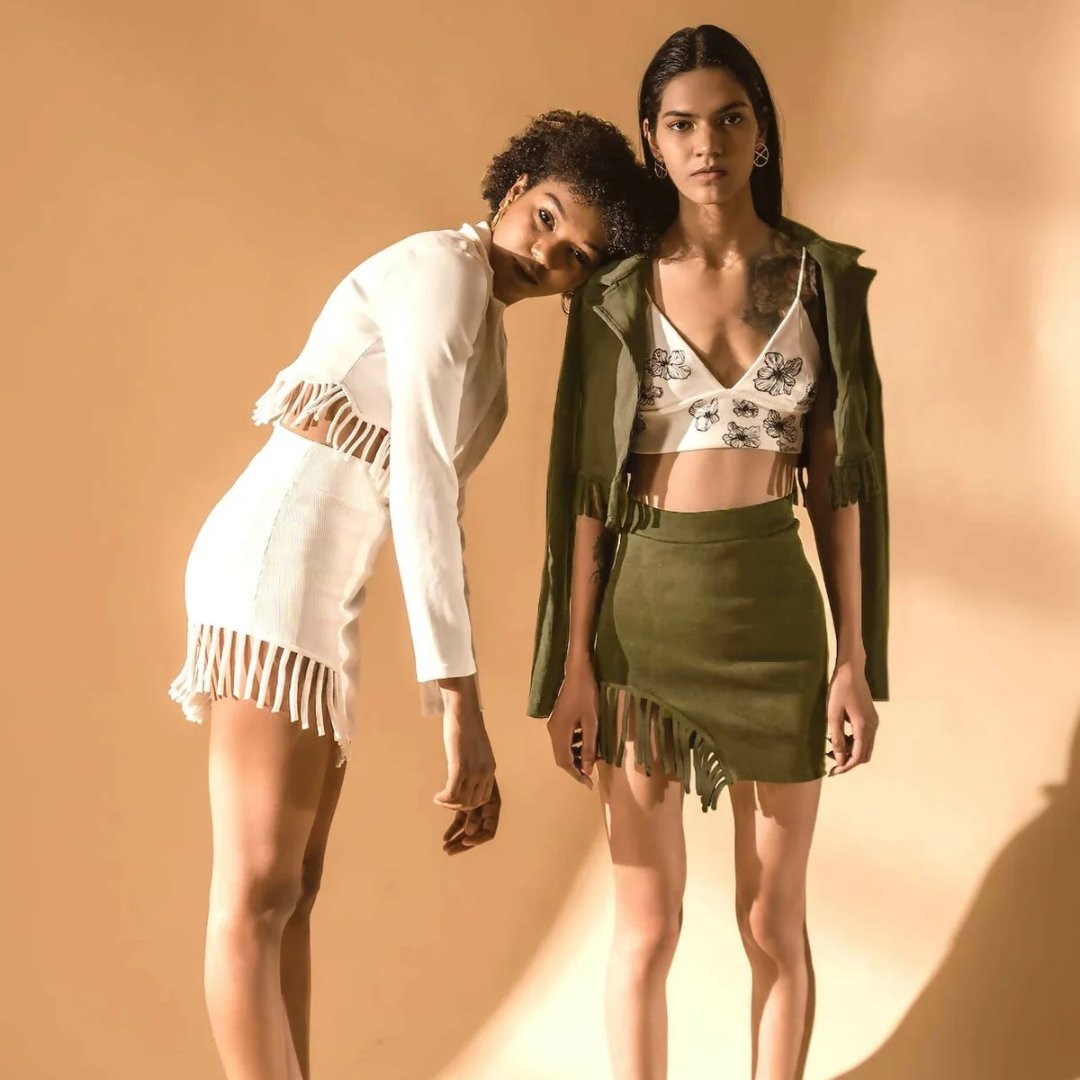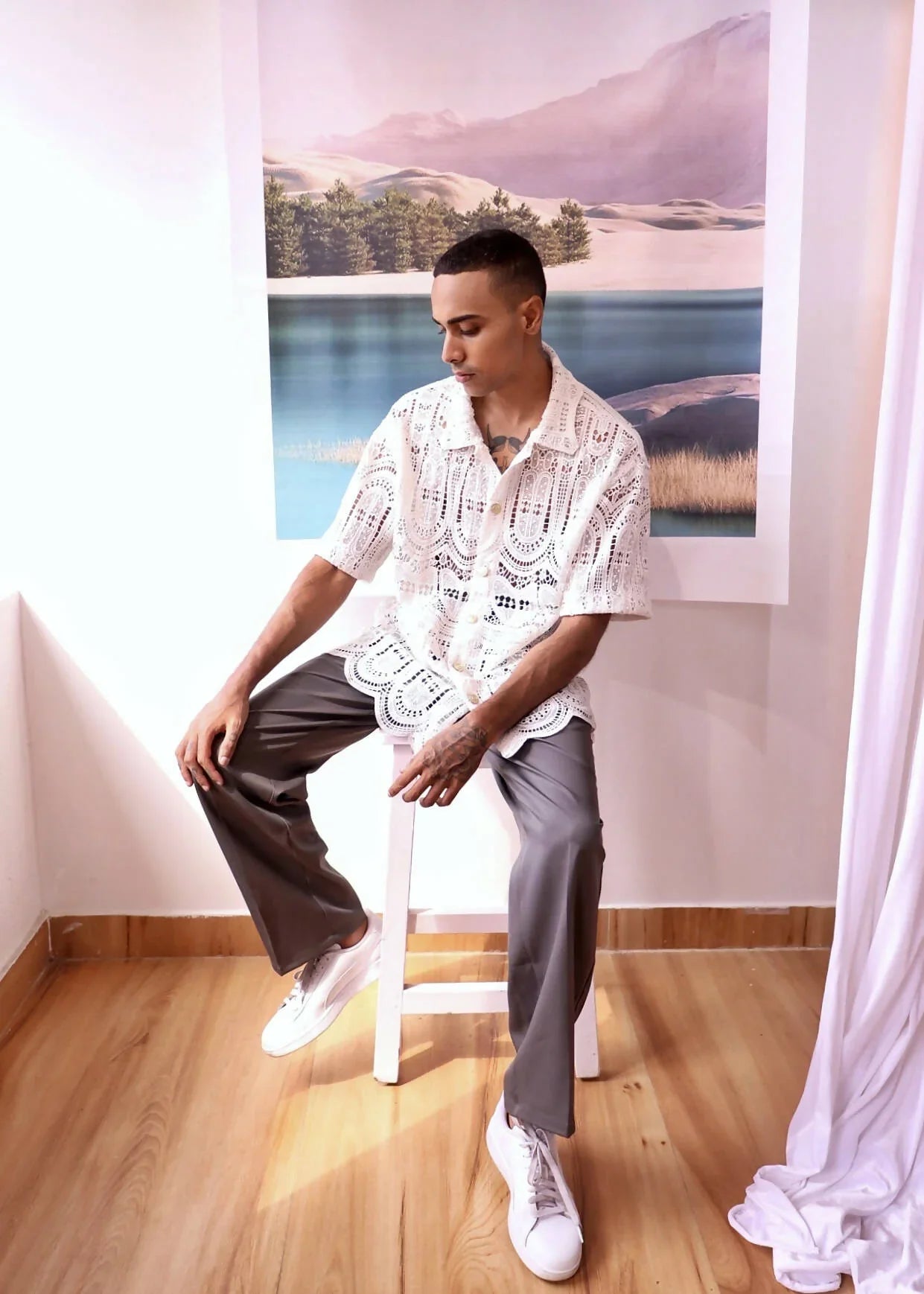Sustainability Vocab to know in 2020
2020 will be the year when fashion houses recognise that sustainability is not just a trend but a way of life that consumers will embrace in the future. As this shift happens, businesses & consumers alike will need to familiarise themselves with the new sustainability lingo to remain relevant.
We, at REFASH, have put together a list of terms that each of of you must know -
FAST FASHION:
Fast fashion is a contemporary term coined in the 1990’s used by fashion retailers for designs that move from the catwalk quickly to capture current fashion trends. Fast fashion brands are not necessarily creating pieces to last a long time, with over 60% of the fabric used being synthetics. The main philosophy of fast fashion is quick manufacturing at affordable prices.
SLOW FASHION:
The slow fashion or conscious fashion movement has arisen in opposition to fast fashion and is an extension of the “slow movement”. It advocates the use of good quality raw materials to produce products that promote a clean environment and fairness for both consumers and producers. Slow fashion products are long lasting, fair, ethical and environmentally friendly.

SUSTAINABLE:
The concept of sustainability focuses on meeting the needs of the present without compromising the ability of future generations to meet their needs. Sustainable businesses embrace three main pillars: economic, environmental and social - also known informally as profits, planet and people, to create products that cause little or no damage to the environment.
ECO FRIENDLY:
Eco-friendly literally means earth friendly or not harming the environment. The term refers to products that contribute to green living or practices that help conserve natural resources like water and energy while preventing air, water and land pollution.
GREEN WASHING:
Greenwashing is the process of conveying a false impression or providing misleading information about how a company's products are more environmentally sound. Greenwashing is considered an unsubstantiated claim to deceive consumers into believing that a company's products are environmentally friendly.
CIRCULAR FASHION:
‘Circular fashion’ can be defined as clothes, shoes or accessories that are designed, sourced, produced and provided with the intention to be used and circulate responsibly and effectively in society for as long as possible in their most valuable form, and hereafter return safely to the biosphere when no longer of human use. (Anna Brismar, Green Strategy, 2017)
ORGANIC:
Organic refers to the type of products that are made with raw materials that were manufactured without the use of chemically formulated fertilisers, growth stimulants, antibiotics or pesticides.
CONSCIOUS CONSUMPTION:
Conscious consumption is a social movement that encourages consumers to make purchase decisions based on the impact that each product has on the environment as well as their health.
FAIR TRADE:
It is a way of buying and selling products that makes certain that the people who produce the goods receive fair wages and are not exploited.
ETHICAL FASHION:
A concept that ensures that clothing is produced using ethical practices like fair wages, no employee exploitation, fair trade, sustainable production, no harm to the environment and animal welfare.
PRE-CONSUMER WASTE:
The type of waste that is generated out of production process by manufacturing units before the product goes out for consumer use.
POST-CONSUMER WASTE:
The type of waste generated and discarded by the end consumer after complete utilisation of a certain product. This kind of waste has served its intended purpose, passed through the hands of a final consumer and has been discarded for disposal.

ZERO WASTE:
The concept of conserving all resources by means of responsible production, consumption, reuse and recovery of all materials and products ensuring that no trash is sent to landfills, incinerators or the ocean.
DOWNCYCLING:
It is a recycling process wherein a certain product is broken down into smaller elements which is further used to create a new product usually of a lower quality. Once the elements are recovered, they are reused if possible, and only those elements that can not be reused are discarded.
RECYCLING:
Recycling is the process of breaking down a product into its’ raw material form and creating a new product out of it who’s quality, often times, is inferior to the quality of the original product.
UPCYCLING:
Upcycling is the process of creating high quality products out of discarded/ leftover/ broken material through creative techniques to be able to add value to the discarded product, extending its’ lifecycle.
REFASHION:
A process to convert old, discarded and obsolete products into new products by creative re-utilisation.
MENDING:
A process to repair damaged or torn garments using basic sewing techniques to ensure the garment is not discarded.
--
Discover more on upcycling here.
Shop upcycled products here.
--
Image Credits - Refash.






Leave a comment